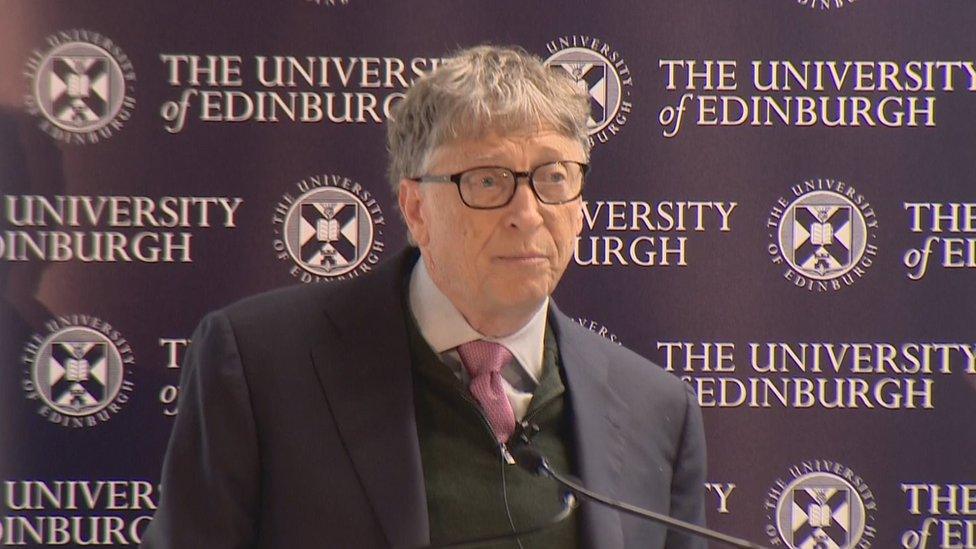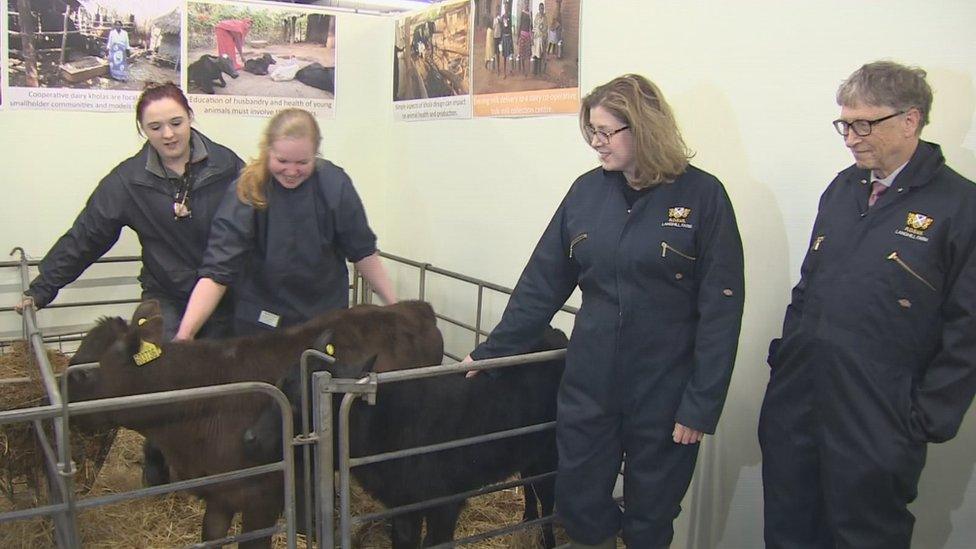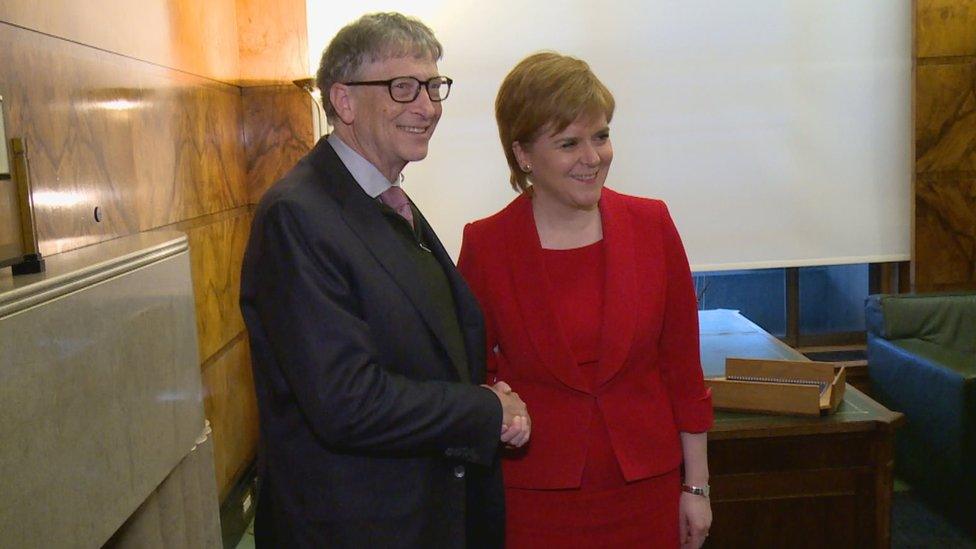Bill Gates backs Edinburgh-based farm research projects
- Published
- comments

The Microsoft founder gave a speech on a visit to Edinburgh
"Cutting-edge" agriculture research projects in Edinburgh have been backed by Microsoft founder Bill Gates.
Mr Gates joined International Development Secretary Penny Mordaunt at an event at the University of Edinburgh.
The Bill and Melinda Gates Foundation is providing funding of $40m for research into improved livestock health.
Mr Gates told the BBC there was "a lot of good work" going on in Scotland.
The funding, for Edinburgh-based charity GALVmed (Global Alliance for Livestock Veterinary Medicines) aims to help make vaccines, medicines and diagnostics accessible to millions of the world's poorest smallholder farmers.
Mr Gates travelled to the Scottish capital after attending the World Economic Forum annual meeting in Davos.

The research aims to improve livestock health in African countries
He told BBC's Glenn Campbell why he was choosing to invest in the work going on in Edinburgh.
"There is great, world-class understanding here of both animal diseases and how we can treat it, and how we enhance the genetics so that you can get, say the same type of milk or egg productivity that we have in the UK," he said.
"Getting anywhere close to that in Africa would be very transforming."
"Chickens in Africa typically lay a couple of eggs, but if you give them the right breeding stock you could get that up to 10 to 12. Likewise in milk, the difference is even greater.
"The kind of cash that a household can earn, the amount of extra protein to improve their diets - this is very important to poor families in Africa."
'Best scientists in the world'
Asked about the importance of international aid and how this sits with President Trump's "America First" policy, Mr Gates said: "No country is an island.
"In the sense that animal disease, human disease, the problems that are caused by instability, whether the economic damage or the refugees - it's one world and we all have to think how we use the best science, how we use that fact that people really care about helping other people, how we bring the private sector into that."
He added: "The US has continued to be the largest aid donor in the world and I am quite confident that will continue because the decision is not only the president's, it's also the US Congress' which is very committed to the key programmes."
Asked about the possible impact of Brexit on UK scientific research, Mr Gates said: "British research is amazing. Our foundation funds the best scientists in the world and we have over $1bn that we have invested in the UK because that's where there is deep expertise.
"We can't predict how the collaborations with the rest of Europe will work. We hope that remains strong but I am sure UK science will remain very much in the forefront."

Bill Gates also met First Minister Nicola Sturgeon during his visit to Edinburgh
Mr Gates has fallen down the official league tables and instead of being described as being "the richest man in the world" is now the "second richest man in the world".
He told BBC Scotland this was "progress" as he has been working to give away his fortune.
"I'll disappear altogether from that list as I do a better job giving money away," he said.
UK International Development Secretary Ms Mordaunt said:"This transformative UK aid research will not only stop diseases from destroying the livelihoods of African farmers, it will also help control livestock diseases on British farms."
Edinburgh University principal Prof Sir Timothy O'Shea said: "In addition to world-class research, our Global Academy of Agriculture and Food Security will equip future leaders with the knowledge and expertise to tackle this challenge and safeguard the future of the world's food supplies for generations to come."
While in Edinburgh, the UK minister also announced plans to develop the Centre for Tropical Livestock Genetics and Health, which is based in both Edinburgh and Nairobi.
Mr Gates also met First Minister Nicola Sturgeon and heard a presentation on work being carried out as part of the NHS Global Citizenship Programme.